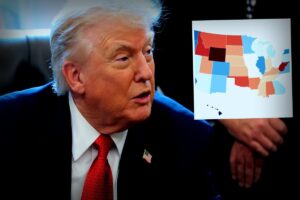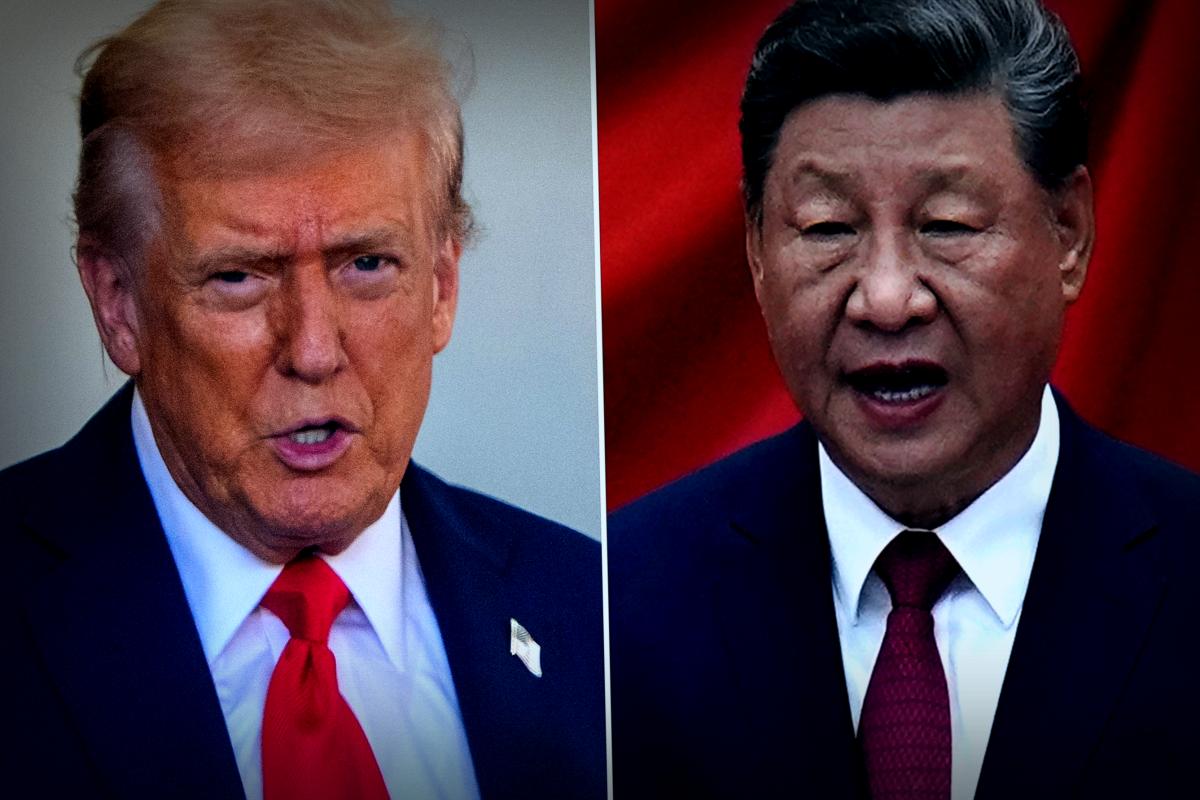In the lead-up to an anticipated summit between President Trump and Chinese President Xi Jinping in South Korea, China has notably broadened its restrictions on rare earth minerals. This move is viewed by the Trump administration as a significant escalation in China’s strategy to dominate global manufacturing.
The new regulations, which will apply universally and come into effect in stages starting November 8 and continuing through December 1, set a concerning precedent.
Ambassador Jameison Greer voiced strong criticism during a news conference with Treasury Secretary Scott Bessent, saying, “This move represents economic pressure against every nation worldwide. China is effectively positioning itself to control a substantial portion of the global economy and the technology supply chain.”
Consequently, Trump has hinted at imposing a formidable 100% tariff on all imports from China starting November 1. However, so far there hasn’t been any sign from Beijing suggesting they will ease their restrictions. Yet, Bessent maintains a hopeful outlook.
“I remain optimistic that we can resolve this situation. We trust in the robust relationship that exists between President Trump and President Xi,” Secretary Bessent mentioned. “In the last few days, we’ve had meaningful discussions with the Chinese and anticipate more engagement this week.”
Experts say that China could be adopting a tough stance to enhance its position in the upcoming negotiations, while simultaneously undermining U.S. efforts to bolster its industrial capability.
Bessent assured reporters that Trump still plans to meet Xi in South Korea, despite the looming tariff threats.
The Chinese government expressed on Sunday that although it aims to avoid a trade conflict, it is prepared to face one if necessary. China’s Ministry of Commerce declared, “Our stance toward tariffs remains steady: we seek to avoid a trade war but will firmly defend our rights and interests.”
The repercussions of China’s restrictions on rare earth minerals could be felt internationally.
Rare earths play an essential role in various sectors across the U.S. and the world, serving as key materials for manufacturing computer chips vital for smartphones and AI solutions. Additionally, they are crucial in the creation of magnets that power drones, robots, and automobiles. Rare earths are also integral to military technology, including F-35 fighter jets, Tomahawk missiles, and radar systems.
As new tariffs are introduced, the financial burden is predominantly falling on US consumers.
Future restrictions dictate that foreign firms will need to seek approval from Chinese authorities for any exports containing even small amounts of certain rare earth elements sourced from China.
Given China’s overwhelming dominance in artifacts, these regulations pose significant national security concerns.
Ambassador Greer illustrated this concern by stating, “If a car manufactured in America is sold in Mexico, vendor approval must be sought from China due to the chips it contains.”
The extensive nature of China’s regulations echoes the U.S. practice of imposing export controls on chip production reliant on American technology.
Some analysts propose that this dramatic change in rules from China signals a desire for the U.S. to reconsider its own export limitations, suggesting that the conflict extends well beyond just tariffs.




















